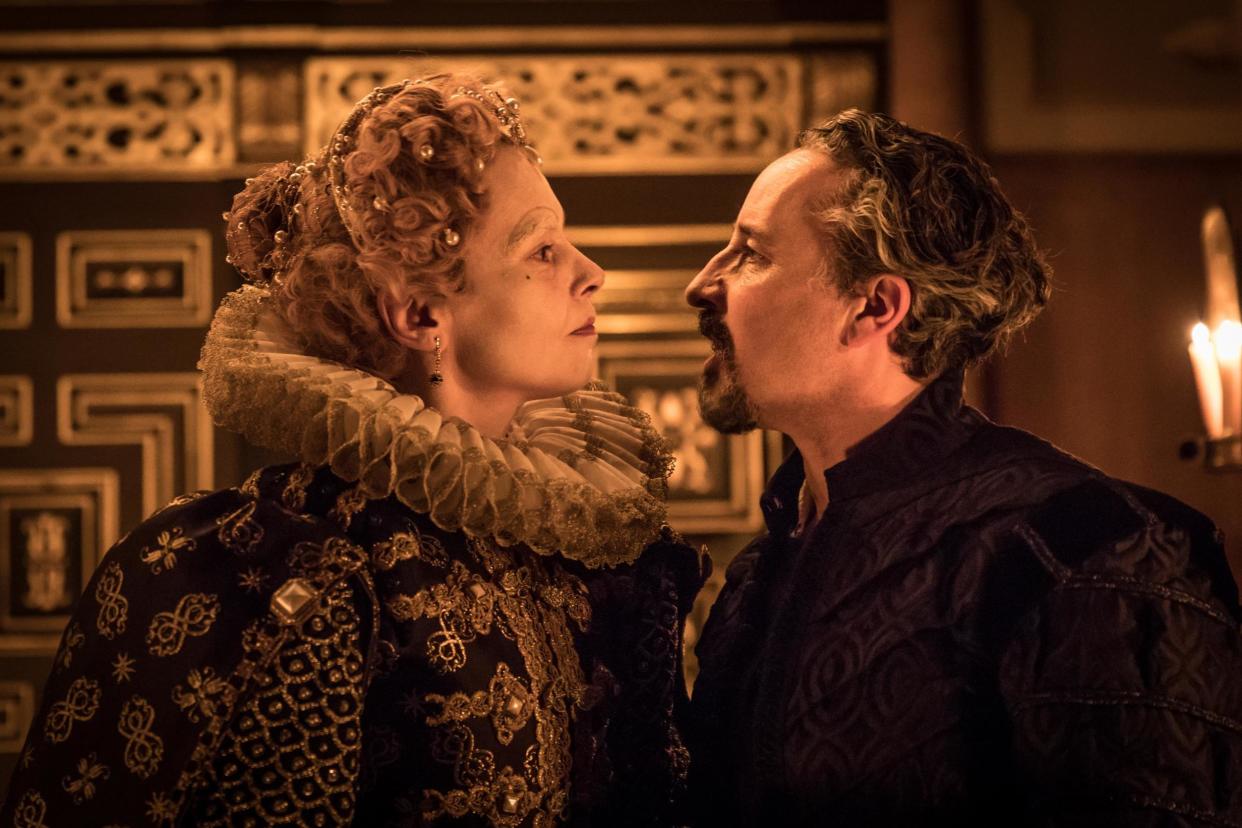The Secret Theatre review: Tarantino meets the Tudors

Anders Lustgarten is a playwright who mixes energetic activism — he’s been arrested on four continents — with a knack for winding up interviewers, often with scathing comments about the efforts of fellow dramatists. Here he offers a typically cheeky contemporary spin on Elizabethan politics, which he identifies as the source of the modern surveillance state.
It’s a world full of intrigue and dissent. The characters may be elegantly dressed, but their existence is unstable, and the struggle to assert control results in some pretty grisly violence — as if a Tudor costume drama has merged with Reservoir Dogs.
The central figure is diplomat Sir Francis Walsingham. The historian Sidney Lee observed of the real-life Walsingham that ‘his methods of espionage were worked at the expense of some modern considerations of morality’, which is a polite way of saying he was a Machiavellian dirtbag.
Here Aidan McArdle suggests his particular brand of astute ruthlessness. At times his performance seems tentative, but his character is meant to be unwell — and besides, he’s an enigma, who guards no secrets more closely than his own. Jon Bausor’s ingenious design, which resembles a giant filing cabinet, cements the idea of Walsingham as a crafty, furtive paper-shuffler.
While the true nature of Elizabeth’s great spymaster has long been a contentious subject, Lustgarten wades into even trickier territory in his portrait of the queen herself. Played by an almost unrecognisable Tara Fitzgerald, she may have red hair and pale skin but proves unexpectedly profane and petulant — sometimes indulgent, yet easily irritated.
In all, nine actors fill around twenty roles, and there are points when Matthew Dunster’s deliberately Stygian production is atmospheric but hard to follow. It’s best in its most intimate moments, when individuals’ psychological flaws are palpable. The standouts are Ian Redford’s Sir William Cecil, a man with an uncanny instinct for survival, and Abraham Popoola as disturbingly blasé torturer Richard Topcliffe.
The play’s title derives from John Le Carré’s insight that ‘Espionage is the secret theatre of our society’, which captures the way the covert aspects of politics shape history. There’s an obvious relevance, too, in the images Lustgarten creates of public unrest and Elizabeth’s vexed relationship with Europe. He strains for topicality and can be overly emphatic when he spells out the parallels between past and present. Yet he’s perceptive about authoritarian leaders and the means by which they silence their opponents.
Until Dec 16, Sam Wanamaker Playhouse; shakespearesglobe.com

 Yahoo News
Yahoo News 
